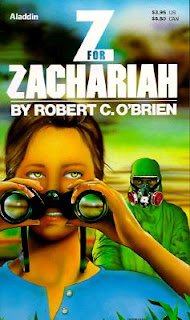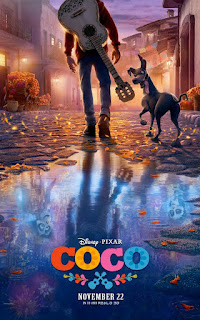Myth and Deep Magic
When it comes to Christmas specials featuring Santa Claus, Rankin/Bass' Santa Claus is Comin' to Town is probably the most well-known, and with good reason. It's classic and the years have been kind to it, much like they have to A Charlie Brown Christmas. But for many years, Comin' to Town was not my favorite version of the Santa myth. That honor went to the lesser-known Life and Adventures of Santa Claus, also produced by Rankin/Bass and based on L. Frank Baum's book of the same name. Although I hadn't seen it for many years, I would still tell people that this was my favorite version of Santa's origin story. This last year, I was finally able to sit down and watch the special again, and I found myself comparing it to Comin' to Town as I had before, but now the scales of my favor were tipping decidedly toward the earlier special.
I've been mulling over why that is, and I've come to the simple conclusion that it's all about myth and Deep Magic.
For those of you who haven't read the Chronicles of Narnia, Deep Magic (and the Deeper Magic) is what Lewis uses to refer to the binding laws of the universe (and thus God's will and theological truth). So when I say that I'm talking about myth and Deep Magic, I mean I'm digging into the heart of the story and what lies within and behind that heart -- the worldview that shapes what's happening on the screen.
You see, there's a very big difference in the way the two specials present Santa Claus. For Life and Adventures, Santa is human and was raised by nymphs and sprites and other mythical beings in the enchanted Forest of Burzee. He longs to spread cheer to the human race like the happiness he's known among the fairies. In Comin' to Town, Santa was raised by so-called elves in a mountain valley in Eastern Europe. He longs to share the toys these elves make with the children of the nearest town (and later the world) because it will make everyone happy. Fairly similar, yes? Here's where the difference comes in: the first Santa's story is completely divorced from the Christmas story. There is never a mention of Christ or the Nativity or any reason why Christmas is so special (not even a winter solstice to fit the grand pagan nature of its mythos). But for Santa in Comin' to Town, the entire reason for Christmas being the day gifts are given is because of Christ. He even chooses to marry Mrs. Claus (who doesn't exist in Baum's version) on Christmas Eve for the same reason.
While it's a seemingly small difference, it is an important one.
When I was younger, I loved the myth and fantasy of Life and Adventures more. It had more fun with the story, I thought. It connected Santa to a larger story about the world and introduced figures who obviously had bigger stories of their own (like the Great Auk and the others of the council of immortals). As an adult, the story seems to have lost some of that. It lacks a deeper magic that makes Comin' to Town resound in the chambers of my heart.
Because Comin' to Town, by connecting Santa's story to Christ's (as the historical St. Nicholas' was), achieves what I thought Life and Adventures had done. Santa's becomes one story within the larger Story, a supporting hero of The Hero. I still love the mythic scope of Life and Adventures, but it feels shallow in a way that Comin' to Town hasn't seemed in years.
Are there stories that you've changed your opinion of over the years? What caused that change?
I've been mulling over why that is, and I've come to the simple conclusion that it's all about myth and Deep Magic.
For those of you who haven't read the Chronicles of Narnia, Deep Magic (and the Deeper Magic) is what Lewis uses to refer to the binding laws of the universe (and thus God's will and theological truth). So when I say that I'm talking about myth and Deep Magic, I mean I'm digging into the heart of the story and what lies within and behind that heart -- the worldview that shapes what's happening on the screen.
You see, there's a very big difference in the way the two specials present Santa Claus. For Life and Adventures, Santa is human and was raised by nymphs and sprites and other mythical beings in the enchanted Forest of Burzee. He longs to spread cheer to the human race like the happiness he's known among the fairies. In Comin' to Town, Santa was raised by so-called elves in a mountain valley in Eastern Europe. He longs to share the toys these elves make with the children of the nearest town (and later the world) because it will make everyone happy. Fairly similar, yes? Here's where the difference comes in: the first Santa's story is completely divorced from the Christmas story. There is never a mention of Christ or the Nativity or any reason why Christmas is so special (not even a winter solstice to fit the grand pagan nature of its mythos). But for Santa in Comin' to Town, the entire reason for Christmas being the day gifts are given is because of Christ. He even chooses to marry Mrs. Claus (who doesn't exist in Baum's version) on Christmas Eve for the same reason.
While it's a seemingly small difference, it is an important one.
When I was younger, I loved the myth and fantasy of Life and Adventures more. It had more fun with the story, I thought. It connected Santa to a larger story about the world and introduced figures who obviously had bigger stories of their own (like the Great Auk and the others of the council of immortals). As an adult, the story seems to have lost some of that. It lacks a deeper magic that makes Comin' to Town resound in the chambers of my heart.
Because Comin' to Town, by connecting Santa's story to Christ's (as the historical St. Nicholas' was), achieves what I thought Life and Adventures had done. Santa's becomes one story within the larger Story, a supporting hero of The Hero. I still love the mythic scope of Life and Adventures, but it feels shallow in a way that Comin' to Town hasn't seemed in years.
Are there stories that you've changed your opinion of over the years? What caused that change?



This was a /fascinating/ comparison, Eli.
ReplyDeleteThanks. It felt a little more profound when I started and then just turned into one of my usual ramblings.
Delete